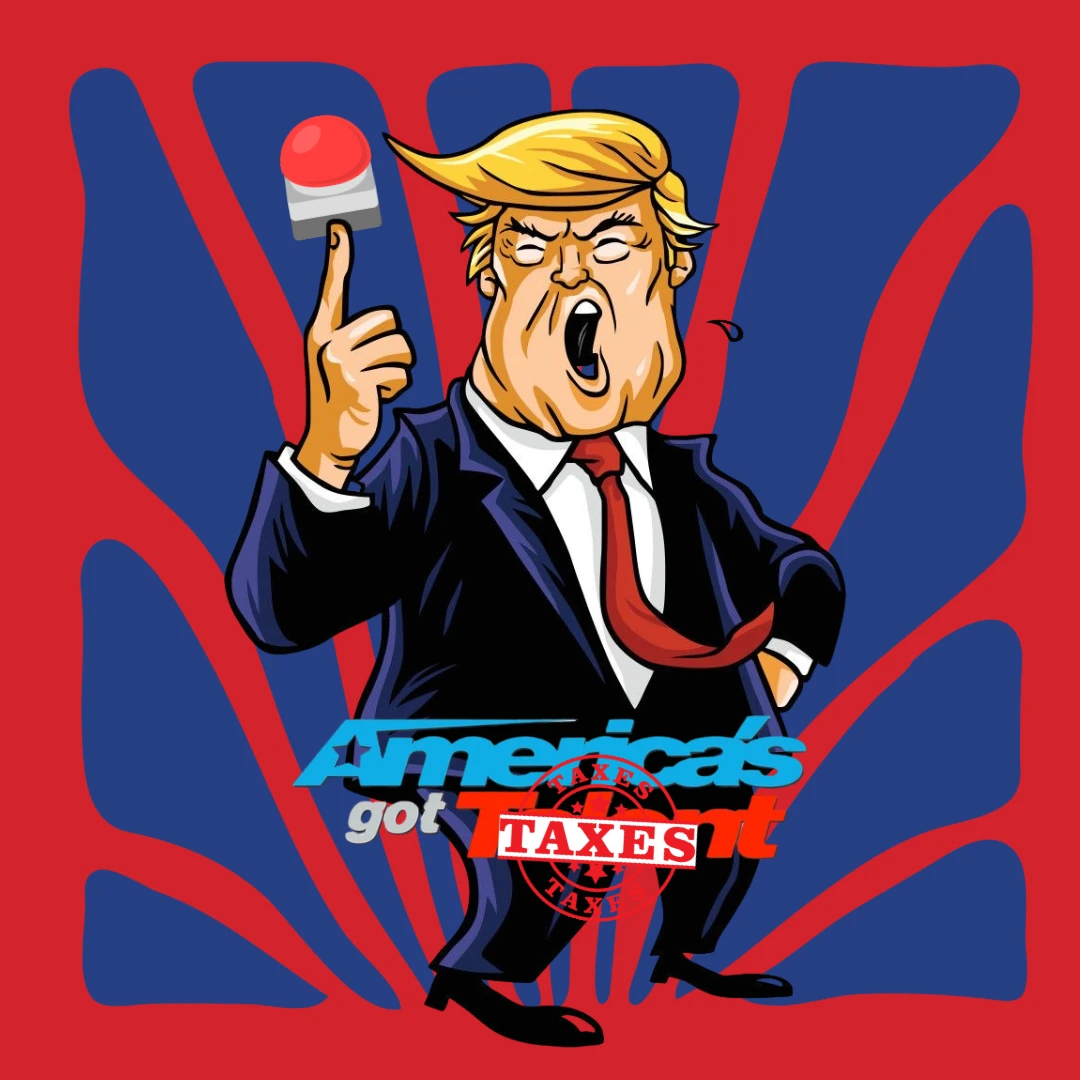President Trump’s decision to require companies to pay $100,000 annually to sponsor H1-B visa holders marks one of the most consequential shifts in U.S. immigration policy in decades. What is being sold as a protectionist measure to safeguard American jobs could instead upend the way businesses, especially small and mid-sized firms, access the global talent they need to compete.
By dramatically raising the cost of sponsorship, the policy tilts the playing field in favour of the largest corporations, which can absorb the expense, while effectively shutting out startups and smaller companies from the high-skill labour market. This risks consolidating foreign talent in the hands of a few giants and weakening the country’s broader innovation ecosystem. It also leaves the United States vulnerable to losing ambitious workers to rival economies such as Canada and Europe, which are actively competing to attract the very talent Washington is pushing away. However, before delving further into the repercussions of the Trump administration's decision, let's talk more about the H-1B visa itself.
What is the H-1B visa?
Since its creation in 1990, the H-1B visa has been the primary mechanism through which the U.S. recruits highly skilled workers in science, technology, engineering and mathematics (STEM). Every year, 85,000 new visas are made available, and they are consistently oversubscribed, often within days of the application window opening. The popularity of the programme serves as proof of America’s magnetism: students trained in U.S. universities want to stay, contribute and build their lives here.
Critics of the system have long argued that companies exploit the programme to undercut American workers, especially in lower-wage IT jobs. This, however, has always been a minority of cases rather than the norm; the reality is that most H-1B recipients undertake roles where there is a genuine domestic shortage.
At a time when talent is the most precious commodity, America is deciding to raise the price of talent for itself.
Rather than reforming the system to reduce abuse, while preserving its benefits, the administration has opted for what the Washington Post aptly called ‘a sledgehammer’. A blanket $100,000 sponsorship fee could stifle innovation and advancement in a country which prides itself as a global centre of freedom of thought, risk-taking and a fiercely entrepreneurial spirit.
The Economic Cost of a ‘Talent Tariff’
Economists are already warning of the scale of the fallout. According to JPMorgan’s projections, the $100,000 sponsorship fee could reduce H-1B work authorisations by around 5,500 per month. This essentially means that thousands of highly skilled engineers, doctors and researchers may no longer find a pathway to work in the United States. Instead, these individuals are likely to redirect their talent to more welcoming economies, accelerating a global brain drain away from America.
For startups and smaller firms, the rule functions as a ‘talent tariff’. Many founders say that the fee effectively prices them out of the global labour market. In Silicon Valley, some of the most transformative companies such as Google, Tesla and Zoom were founded or co-founded by immigrants. Today’s early-stage founders want to hire globally to scale quickly, but the Trump Talent Tax forces them to compete with trillion-dollar corporations that can easily outspend them. The result of this is a two-tiered system where only the richest firms have access to global talent, and everyone else is locked out.
Beyond tech, the ripple effects will be felt in healthcare and education. Rural hospitals often rely on foreign doctors, many of whom start out their professional journeys in the U.S. on H-1B visas. Universities recruit international scholars who enrich research output and classroom teaching. These institutions rarely have the financial bandwidth to pay $100,000 per hire. Their loss will be measured not just in missed opportunities, but in reduced services to American communities.
Diplomatic and Global Competitiveness Risks
The human and diplomatic costs are no less significant. The Pakistani government and policy circles have expressed concerns about the likely humanitarian consequences of this measure, particularly for middle-class families who have long seen H-1B sponsorship as a bridge to upward mobility. For Pakistan, where remittances from highly skilled workers in the U.S. form a critical lifeline, such abrupt restrictions threaten to cut off not just individual opportunities but also national economic benefits tied to overseas talent.
Pakistan, like neighbouring India, sends a steady stream of skilled workers, particularly in IT, finance and academia, to the United States. Many of these professionals become crucial conduits for knowledge transfer, investments and even startup activity back home. By raising the cost of sponsorship so sharply, the new policy risks narrowing this pipeline, potentially pushing Pakistani talent towards Canada, the UK or Germany. Washington has often relied on partnerships with Pakistan in areas of regional security, counterterrorism and trade cooperation. Alienating Pakistani professionals, who serve as soft-power ambassadors for U.S.-Pakistan relations risk weakening these already delicate ties.
The reality is that the U.S. does not have a ready supply of advanced AI researchers, chip designers or specialised engineers to step into these roles overnight. By imposing what is effectively a $100,000 tax on talent, the administration risks creating a gap that cannot easily be filled domestically.
The policy has also divided America’s business elite. Executives like Nvidia’s Jensen Huang and OpenAI’s Sam Altman have voiced concern that such a steep fee will make it harder to recruit top-tier global talent. Jamie Dimon of JPMorgan Chase has been more cautious, but acknowledged the risks of creating uncertainty in a labour market that thrives on predictability.
The split is telling: those closest to innovation tech entrepreneurs, AI leaders and startup investors see the policy as existentially threatening. Those in more established sectors may have the balance sheets to endure it. This bifurcation of opinion mirrors the bifurcation the policy itself creates: a system where incumbents thrive and challengers are throttled.
The Myth of Job Protection
Supporters of the fee argue that it will deter abuse of the H-1B programme and ensure companies hire American workers first. Yet, the reality is that the U.S. does not have a ready supply of advanced AI researchers, chip designers or specialised engineers to step into these roles overnight. By imposing what is effectively a $100,000 tax on talent, the administration risks creating a gap that cannot easily be filled domestically. The result will not be more jobs for American workers, but rather more innovation occurring elsewhere.
Moreover, protectionist policies rarely achieve their stated goals. Studies have shown that immigrant workers are often job creators rather than job takers, founding companies that employ thousands. By closing the pipeline, the U.S. may not be protecting workers at all. It may be depriving them of the new industries and opportunities that immigrants help generate.
A Values Test for America
Beyond economics, the Trump Talent Tax is a statement about what kind of country the United States wishes to become. For generations, the promise of opportunity has drawn ambitious people from around the world. The H-1B programme has been one of the clearest channels for translating that promise into reality. With a $100,000 price tag, the administration is turning opportunity into a luxury product that is available only to the biggest corporations while startups, immigrant families and society at large are left to pay the price.
Think about the optics: as the U.S. debates how to stay ahead in the race for artificial intelligence, clean energy and advanced manufacturing, it simultaneously tells the world’s brightest young minds that their contributions are unwelcome, unless their employers can afford a six-figure fee. At a time when talent is the most precious commodity, America is deciding to raise the price of talent for itself.
A Better Path Forward
The U.S. has long balanced concerns about abuse of the H-1B system with its need for skilled immigration. There are reforms worth considering: tightening wage requirements to ensure workers are paid fairly, prioritising visas for critical industries, or expanding oversight to prevent outsourcing firms from hoarding slots. These are precise interventions that focus on the key issues at hand. In stark contrast, the Trump Talent Tax is a blunt hammer that risks alienating many.
The H-1B system has long been imperfect, but it needs refinement, not destruction. If America insists on closing its doors, others will gladly open theirs. The race for talent is global, and once lost, it is rarely regained.





